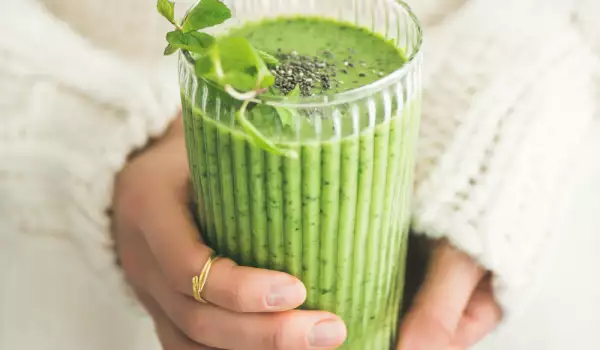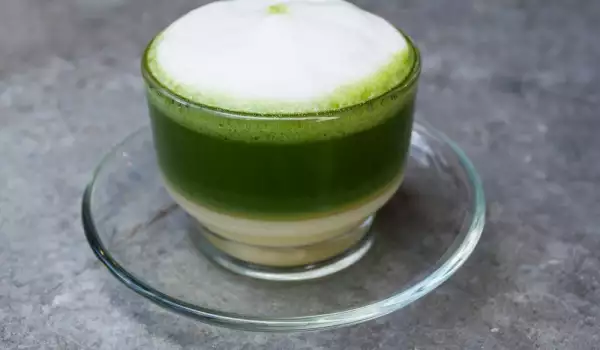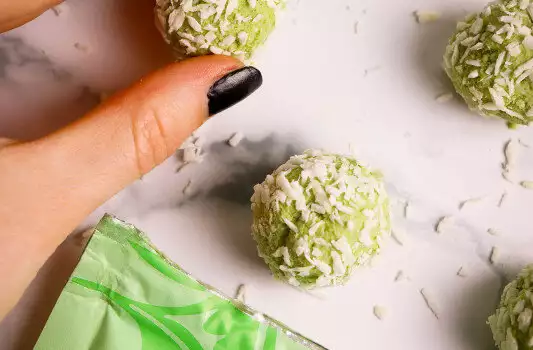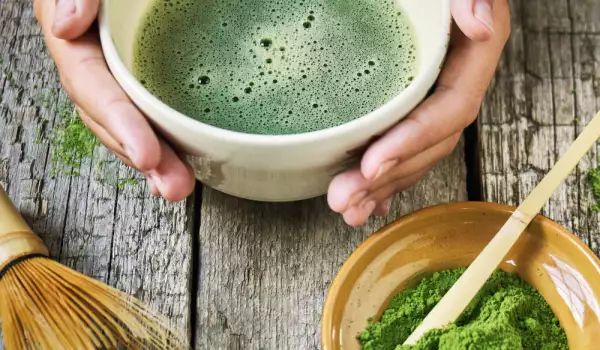Matcha tea is a powdered green tea, which is traditionally used in Japan for tea ceremonies. It has recently started appearing in various drinks and desserts in the United States.
Nowadays, people all over the world consume it as a modern healthy drink.
This tea provides health benefits due to the fact that it contains antioxidants, which are extremely beneficial. Most people make green tea as an infusion. This means drinking tea dipped in hot water.
Matcha tea is made from the Camellia sinensis plant. From it come all kinds of green tea.
In order for it to become Matcha tea, Camellia sinensis must grow in the shade. This increases the amount of pigment called chlorophyll in the tea leaves. This tea contains an amino acid called L-theanine, which can have positive effects on the human health.
The leaves are available in powder form and the tea has a delicate and pleasant taste, which in no case should be bitter. You can make Matcha tea by stirring it in hot water with a tea stirrer. The tea should have a frothy texture and bright green color.
Matcha Tea is of the highest quality. Matcha premium class is suitable for daily consumption. The cooking option is the cheapest of this type of tea. Matcha can be added to healthy desserts for color and as a flavoring.
Health benefits of Matcha tea

1. Increasing concentration
Consuming foods and beverages rich in L-theanine can promote a state of relaxation, calmness and better memory;
2. Prevents cancer
Green tea contains a class of antioxidants called catechins, especially epigallocatechin gallate (EGCg), which may have antitumor properties. According to the National Cancer Institute, EGCg can help prevent cancer by protecting cells from DNA damage;
3. Reduce the risk of heart disease
Studies suggest that high green tea intake predisposes to a lower risk of developing heart disease. It is believed that drinking green tea can reduce heart disease as well as high cholesterol levels;
4. Prevention of type 2 diabetes
A clinical trial found that drinking four cups of green tea each day significantly reduced the risk markers of diabetes. These factors include body weight, body mass index (BMI) and systolic blood pressure;
5. Relieve autoimmune uveitis
Research suggests that the catechins in green tea may help relieve the symptoms of visual impairment in people with autoimmune uveitis. Uveitis is an inflammation inside the eye. Inflammation usually occurs when your immune system is fighting an infection. Uveitis sometimes means that your immune system is fighting an eye infection, but it can also happen when your immune system attacks healthy tissue in your eyes. Uveitis can cause problems such as pain, redness and vision loss.
Making Matcha Tea

Traditionally, people mix 1 tsp. of matcha powder with 1/3 cup of water, which is hot but not boiling. The growing interest in Matcha tea has led to several different ways to use it.
Here are some other ideas with Matcha:
- Add it to frothy milk to make Matcha Latte;
- Add Matcha powder to healthy smoothies;
- Mix Matcha in oatmeal;
- Make homemade granola bars with the help of Matcha;
- Add this type of green tea to salads, with little fat, vinegar and sweetener.
A hit in modern nutrition are recipes such as:
- Ice cream on a stick with Matcha;
- Iced tea with orange and Matcha;
- Green granola bars with Matcha.
Where to find Matcha

You can buy Matcha tea at health food stores, specialty tea stores and online. Always on the packaging of tea you must ensure that Matcha powder is the only ingredient. Many packages or unhealthy mixtures will have added sugar, artificial sweeteners or other ingredients, which may reduce its health benefits.
There are no studies on the risks of Matcha tea.




















Comments